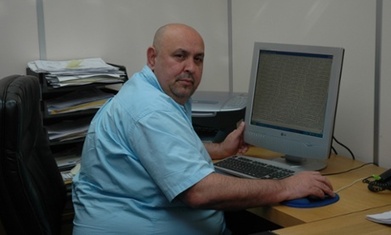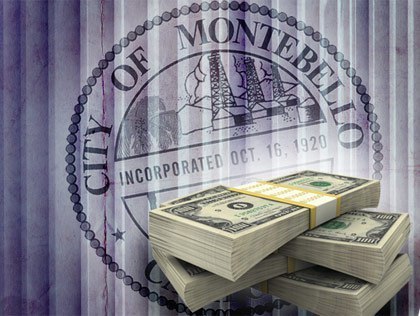Author Archive
SLAPP008 – An Anti-SLAPP Motion Against an Evil Yogurt Shop
A client found me while searching for information about California Code of Civil Procedure section 425.17, proving that clients do some very sophisticated research on their legal issues. Changing the facts to protect the privacy of my client, he had warned the public about an evil yogurt maker who was falsely claiming to sell organic yogurt, and for that good deed he was hit with a lawsuit for defamation and interference with business.
In today’s podcast, we discuss the elements of CCP section 425.17, which under the proper circumstances will exempt a business versus business claim from the anti-SLAPP statute. In the most basic sense, section 425.17 applies when one business is talking about another business’s goods or services, AND the audience that the business is talking to consists of potential customers, AND the point of the talking is to promote the speaker’s own business.
Will section 425.17 defeat the anti-SLAPP motion, and allow the evil yogurt maker to go forward with his bogus defamation claim? Listen to episode 8 of The California SLAPP Law Podcast and find out.
Case cited: Sharper Image Corporation v. Target Corporation, 425 F.Supp.2d 1056 (N.D. CA 2006). In this case, Sharper Image, manufacturer of tower air purifier brought action against Target, manufacturers and retailers of competing product, alleging patent and trade dress infringement. Target moved for summary adjudication of plaintiff’s claims and their counterclaims for non-infringement of the asserted patents. Sharper Image separately moved to strike defendants’ tort and state law counterclaims, and in the alternative, moved for judgment on the pleadings of the counterclaims, and for partial summary adjudication on its utility patent infringement claim. Of note for today’s discussion, the court found that the anti-SLAPP motion was excluded by CCP section 425.17, but nonetheless threw out the claim under the alternative motions.
Podcast: Play in new window | Embed
Subscribe: RSS
Council spent £200,000 trying to unmask anonymous blogger
A council has dropped a five-year, £200,000 legal campaign trying to unmask a blogger called Mr Monkey, who made allegations of impropriety against four senior members of the authority. A Freedom of Information request has forced South Tyneside council to admit how much they spent trying (and failing) to discover the identity of Mr Monkey, who made allegations of impropriety against four senior members of the authority. They've dropped the curious case after the Guardian started asking questions
Source: www.theguardian.com
The Council suspected the blog was authored by Ahmed Khan, but Khan has always vehemently denied being Mr Monkey and unsuccessfully filed an ‘anti-SLAPP’ (Strategic Lawsuits against Public Participation) motion in 2011, which would have prevented the council from obtaining more of his details. But this claim was dismissed by a judge as “frivolous”, as the nature of the John Doe suit meant he was never named as a defendant.
There are procedures by which an anonymous blogger can oppose a subpoena that would expose his identity, but you can't simply bring an anti-SLAPP motion claiming you're not the defendants.
Read the rest of this entry »Cooley Law School Loses Defamation Suit Against New York Law Firm
Cooley Law School has lost an appeal in their defamation lawsuit against a law firm that posted criticism of the school's reporting of student debt on a popular law school message board.
The school had filed a $17 million lawsuit against Kurzon Strauss LLC, a New York firm, and two attorneys associated with the firm, Jesse Strauss and David Anziska, accusing them of posting defamatory statements on the popular law school message board "JD Underground". The post said that federal regulators were investigating Cooley Law School over student loan default rates and employment for graduates.
Those statements were later retracted, but the firm then began preparing a proposed class-action lawsuit against the school, at which point Cooley filed its suit against the firm accusing them of defamation, breach of contract and interference with business relations, among other claims.
A trial court granted judgment to Kurzon Strauss before trial, saying that Cooley Law School was a "public figure" and therefore would have to prove that the firm acted with a disregard for the truth, a bar the court said Cooley could not clear
Source: www.mlive.com
When in individual or entity is deemed to be a "limited public figure", the theory is that such a person has greater access to the media, and therefore tell their side of the story. Therefore, when a limited public figure sues for defamation, they have a higher standard of proof to show that defamation. Specifically, they must show the person who allegedly defamed them acted with "actual malice" or "reckless disregard for the truth".
Here, the court concluded that Cooley Law School would not be able to meet that burden.
Go here for more Internet Defamation cases.
Read the rest of this entry »SLAPP007 – Proving Actual Malice in a Defamation Action – Makaeff v. Trump University
A great anti-SLAPP decision that has been five years in the making. In this podcast, we discuss the case of Makaeff v. Trump University, which contains an outstanding discussion of limited public figures and meeting the standard for showing actual malice. Here are the facts:
Between August 2008 and June 2009, Tarla Makaeff attended approximately seven real estate investing and finance seminars, workshops, and classes hosted by Trump University and spent a total of approximately $60,000 on the programs. Although Trump University asserted Makaeff was satisfied with the services Trump University provided to her, noting that Makaeff frequently provided excellent reviews of the programs, Makaeff stated the Trump University programs she attended were unsatisfactory. Specifically, Makaeff alleged the programs were shorter than advertised, she was provided only a toll-free telephone number instead of a one-year mentorship of “expert, interactive support,” and her Trump University mentors were largely unavailable and offered no practical advice when she did speak with them.
In addition, Makaeff alleged she was told by Trump University staff to raise her credit card limits to purchase real estate, but once she did, she was pressured by Trump University staff to instead use her elevated credit to purchase the Trump Gold Elite seminar for $34,995. Makaeff also claimed she was told by Trump University staff that her first real estate transaction after signing up for the Trump Gold Elite program would earn her approximately the amount she spent on the Trump Gold Elite program, which it did not. Additionally, Makaeff alleged Trump University instructed her to engage in illegal real estate practices, such as posting advertising “bandit signs” on the sides of roadways. On June 18, 2009, Makaeff received a letter from the Orange County District Attorney’s Office informing her that posting bandit signs in California without lawful permission could subject her to fines, a misdemeanor charge, and up to six months in jail.
Makaeff brought a class action lawsuit against Trump University on April 30, 2010. On May 26, 2010, Trump University filed a defamation counterclaim against Makaeff, alleging Makaeff “published statements to third parties about Trump University orally, in writing and on the Internet that are per se defamatory, including many completely spurious accusations of actual crimes.” Trump University alleged Makaeff’s defamatory statements were a substantial factor in causing actual and significant economic damages amounting to or exceeding $1,000,000. Madaeff responded with an anti-SLAPP motion, which was originally denied, but on appeal the Ninth Circuit determined that Trump University was a limited public figure, and send the case back to the District Court for a determination as to whether Trump University could still state a prima facie case, given the higher “actual malice” standard.
How was the case decided? Listen to the podcast to find out.
Cases discussed in the podcast (in bold), taken from the opinion:
To prove actual malice, a defamation plaintiff must show by clear and convincing evidence that the defendant knew her statements were false at the time she made them, or that she acted with reckless disregard of the truth or falsity of the statements made. Gertz v. Robert Welch, Inc., 418 U.S. 323, 328, 94 S. Ct. 2997, 41 L. Ed. 2d 789 (1974). The clear and convincing standard “requires that the evidence be such as to command the unhesitating assent of every reasonable mind.” Rosenaur v. Scherer, 88 Cal. App. 4th 260, 105 Cal. Rptr. 2d 674, 684 (Ct. App. 2001). “A defamation plaintiff may rely on inferences drawn from circumstantial evidence to show actual malice.” Christian Research Inst. v. Alnor, 148 Cal. App. 4th 71, 55 Cal. Rptr. 3d 600, 612 (Ct. App. 2007) (citing Reader’s Digest Assn v. Superior Ct., 37 Cal. 3d 244, 208 Cal. Rptr. 137, 145-46, 690 P.2d 610 (1984)).
Actual malice is a subjective standard. See St. Amant v. Thompson, 390 U.S. 727, 731, 88 S. Ct. 1323, 20 L. Ed. 2d 262 (1968). “[R]eckless conduct is not measured by whether a reasonably prudent man would have published, or would have investigated before publishing. There must be sufficient evidence to permit the conclusion that the defendant in fact entertained serious doubts as to the truth of [her] publication.” Id.
Actual malice “has nothing to do with bad motive or ill will,” and “may not be inferred alone from evidence of personal spite, ill will or intention to injure on the part of the writer.” Harte-Hanks Commc’ns, Inc. v. Connaughton, 491 U.S. 657, 666 n.7, 109 S. Ct. 2678, 105 L. Ed. 2d 562 (1989). However, in appropriate cases, factors such as “[a] failure to investigate, anger and hostility toward the plaintiff, reliance upon sources known to be unreliable, or known to be biased against the plaintiff . . . may . . . indicate that the publisher [herself] had serious doubts regarding the truth of [her] publication.” Reader’s Digest, 208 Cal. Rptr. at 145-46 (citations omitted).
Trump University claims this case is similar to Nguyen-Lam v. Cao, 171 Cal. App. 4th 858, 90 Cal. Rptr. 3d 205 (2009), in which the California Court of Appeals upheld a trial court’s conclusion that malice could be inferred “where, for example, a story is fabricated by the defendant, is the product of his imagination, or is based wholly on an unverified anonymous telephone call.” Id. at 869 (citing Christian Research Institute v. Alnor, 148 Cal. App. 4th 71, 85, 55 Cal. Rptr. 3d 600 (2007)) (internal quotation marks omitted). Trump University argues Makaeff, like the defamation defendant in Nguyen-Lam, “has no ‘place to go for her belief’ that Trump University illegally took the property of anyone, stole anyone’s identity, or opened any credit card without approval.” (Dkt. No. 300 at 15-16.)
The Court finds Nguyen-Lam distinguishable from the present matter. In that case, the California Court of Appeals considered a defamation defendant who had learned about the defamation plaintiff, then a candidate for a public position, only through media reports yet accused her of being a Communist. 171 Cal. App. 4th at 868-69. The evidence in Nguyen-Lam indicated the defamation defendant had no personal knowledge of the defamation outside of the media reports, none of which had mentioned Communism, and thus had no basis for his claim that the defamation plaintiff was in fact a Communist. Id. at 869.
Trump University points to evidence of Makaeff’s anger and hostility toward Trump University, as well as a motive to get a refund, as evidence of actual malice. (Dkt. No. 300 at 17) (citing Christian Research Institute v. Alnor, 148 Cal. App. 4th 71, 84-85, 55 Cal. Rptr. 3d 600 (2007) (“anger and hostility toward the plaintiff . . . may, in an appropriate case, indicate that the publisher himself had serious doubts regarding the truth of his publication”); Harte-Hanks Commc’ns, Inc., 491 U.S. 657, 669, 109 S. Ct. 2678, 105 L. Ed. 2d 562 (“it cannot be said that evidence concerning motive or care never bears any relation to the actual malice inquiry”); Widener v. Pacific Gas & Elec. Co., 75 Cal. App. 3d 415, 436, 142 Cal. Rptr. 304 (1977) (finding an engineer’s motive of wanting to suppress the making of a film and his anger with the film’s producer “sufficient evidence from which the jury could have found that [the engineer] knew [his libelous statement about the producer] was false, or was recklessly indifferent as to whether his statement was accurate or not”)).
Ninth Circuit Opinion finding that Trump University was a limited public figure.
Podcast: Play in new window | Embed
Subscribe: RSS
C.A. Says Ex-Employee’s Settlement Demand Was Extortion
 A fired worker who sued his ex-employer for defamation and wrongful termination committed extortion when he threatened to instigate a federal investigation of the company’s business practices if his demands were not met, the Sixth District Court of Appeal ruled. Read the rest of this entry »
A fired worker who sued his ex-employer for defamation and wrongful termination committed extortion when he threatened to instigate a federal investigation of the company’s business practices if his demands were not met, the Sixth District Court of Appeal ruled. Read the rest of this entry »
SLAPP006 – CalPERS v. Moody’s – Is an Opinion Always Protected Speech Under the Anti-SLAPP Statute?
With the wisdom of a penny-stock investor trying out day-trading for the first time, the brilliant financial minds at CalPERS (California Public Employees’ Retirement System) decided to dump more than a billion dollars into three “structured investment vehicles” or SIVs, backed by subprime mortgages. After all, Standard & Poors had given these three SIVs AAA ratings, even though they were “stuffed full of toxic, subprime mortgages, home equity loans, and other types of structured-finance securities linked to subprime mortgages,” as CalPERS now alleges.
As most do when they make really bone-headed investment decisions, CalPERS looked for someone to blame, and settled on Standard & Poors for that AAA rating. It sued Standard & Poors for negligent misrepresentation, asserting that the ratings company should be held responsible for the losses suffered by CalPERS.
“But wait a cotton-picking minute,” said some fictional attorney representing Standard & Poors, “I read somewhere in law school that opinion is protected speech, and won’t support an action.” On that basis, Standard & Poor’s filed an anti-SLAPP motion, but a San Francisco judge denied the motion, finding that CalPERS had provided sufficient evidence to meet the second prong of the anti-SLAPP analysis.
Today’s podcast examines the opinion of the Court of Appeal as regards the anti-SLAPP motion. Is an opinion about the worth and safety of an investment inherently protected opinion speech?
California Public Employees’ Retirement System, Inc. v. Moody’s Investors Services, Inc., 14 S.O.S. 2584 (A134912). For a copy of the opinion as well as a copy of the original complaint, go here.
Podcast: Play in new window | Embed
Subscribe: RSS
Conflict-of-Interest Suit Against Lawmakers No SLAPP, C.A. Rules
See on Scoop.it – California SLAPP Law
Anti-SLAPP motion denied.
A suit against a public official who is accused of acting on a contract in which he or she has a personal financial interest does not implicate speech or petition rights for purposes of the anti-SLAPP statute, the Court of Appeal for this district has ruled.
Similar to the HOA case I reported yesterday, the fact that the defendant is voting or acting in an official capacity does not successfully invoke the anti-SLAPP statute if the basis of the action is fraud or breach of fiduciary duty.
Here, members of the Los Angeles City Council voted 3-2 to award a 15-year, $150 million contract to a company in which one of the members had a financial interest.
The Court of Appeal, said the a council member’s vote is an act on behalf of the public, not the individual, and thus does not implicate free speech and petition rights.
See on www.metnews.com
Eddie Murphy Beats Comedian’s Defamation Lawsuit
See on Scoop.it – California SLAPP Law
Eddie Murphy has prevailed in a strange $50 million defamation lawsuit brought by a comedian named Brando Murphy.
The bigger question is how plaintiffs find attorneys willing to represent them in cases like this.
A comedian named Brando Murphy allegedly insinuated that he was the son of Eddie Murphy, to the point that he appeared with Richard Pryor’s son on the “Sons of Comedy” tour. When Eddie Murphy’s attorney sent a cease and desist letter (and accused him of stalking), Brando sued Eddie for defamation.
Eddie responded with an anti-SLAPP motion, and Brando was unable to show that he was more likely than not to prevail on his action. Motion granted. Brando has already appealed.
For all important anti-SLAPP news, go to California SLAPP Law.
See on www.hollywoodreporter.com
Anti-SLAPP statute does not apply to statements made to HOA during board meetings | Lexology
See on Scoop.it – California SLAPP Law
“In a recent opinion, the California Court of Appeal decided that a builder cannot use the anti-SLAPP statute to circumvent fraud-based claims where there were misrepresentations by the builder to the homeowners association regarding repairs for defects at the project.”
The use of the anti-SLAPP statute was doomed from the start, but it was a novel attempt. During the time that the HOA board was still dominated by the developer’s own employees, it voted to charge the members for certain repairs. A later Board determined that the developer was responsible for the repairs, and sued to recover the costs of the repairs. The developer brought an anti-SLAPP motion, unsuccessfully claiming that the vote of the developer-dominated Board was protected speech.
See on www.lexology.com
California Court: We Won’t Issue A Subpoena To Identify Someone Just To Prove ‘Someone Is Wrong On The Internet’ | Techdirt
See on Scoop.it – California SLAPP Law
Click on the “Scoop.it” link for an interesting article on Internet anonymity. In essence, someone commented on about a blog post about a lawsuit. The person claimed to be an employee of one of the parties to the litigation, so the other side sought to subpoena the records to determine the identity of the person who made the post. Incredibly, the trial court ordered that the information be turned over, completely ignoring one’s right to remain anonymous on the Internet. On appeal from the order, the Court of Appeal reversed, stating:
“Visitor has done nothing more than provide commentary about an ongoing public dispute in a forum that could hardly be more obscure—the busy online comments section of a digital trade newspaper. Such commentary has become ubiquitous on the Internet and is widely perceived to carry no indicium of reliability and little weight. We will not lightly lend the subpoena power of the courts to prove, in essence, that Someone Is Wrong On The Internet.”
See on www.techdirt.com








